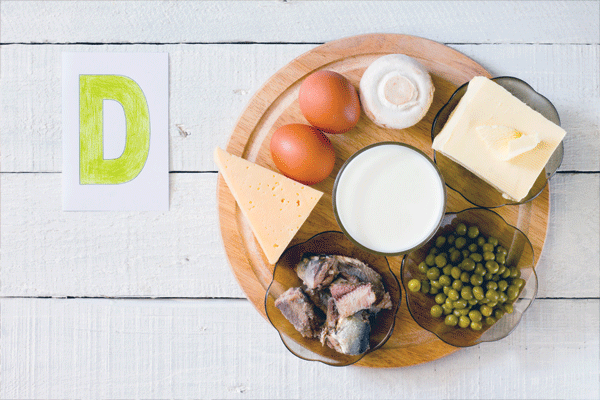High doses of vitamin D may not help strengthen bones in postmenopausal women, a study suggests.
Vitamin D helps the body use calcium, and calcium in turn helps support bone health. After a year on high-dose vitamin D supplements, women were absorbing slightly more calcium from their intestines into their blood compared to women who took low doses of vitamin D or a dummy pill.
Read: The miracle of vitamin D
But that didn't seem to matter, because all three regimens produced similar results in terms of bone mineral density, muscle mass and the women's risk of falling.
Fatal and non-fatal injuries
"We conclude that there is no reason to take more than the recommended daily allowance for vitamin D," lead author Dr Karen Hansen of the University of Wisconsin in Madison said by email.
Falls are a leading cause of fatal and non-fatal injuries among the elderly, according to the U.S. Centres for Disease Control and Prevention.
For older women, this risk of fall-related injuries is compounded by osteoporosis, or thinning bones, which occurs when production of the hormone oestrogen declines after menopause.
Read: Study links oestrogen hormone to asthma
For most adult women, the recommended daily intake of vitamin D is 600 IU (international units), or 800 IU after age 70, according to the U.S. National Institutes of Health. While few foods provide vitamin D, it can be found in beef liver, canned salmon or sardines, cheese and egg yolks as well as fortified milk and orange juice.
Vitamin D supplements

Even though doctors agree vitamin D is essential for bone health, many physicians continue to debate the appropriate role and dose of vitamin D supplements as well as the optimal concentrations of this nutrient in the blood.
Read: No evidence that vitamin D good for bones
Hansen and colleagues examined the impact of vitamin D supplements on 230 women who were at least five years past menopause but no older than 75, and without osteoporosis at the start of the study.
All of them had blood levels of vitamin D that put them at risk for deficiency.
No better than a placebo
During the study, the women were randomly assigned to take either 800 IU or 50,000 IU of vitamin D, or a dummy pill, once every 15 days for about a year.
Total fractional calcium absorption (TFCA) from the gut increased 1 percent among women on the higher dose of vitamin D, but declined 2 percent with the lower dose and 1.3 percent with the placebo, the researchers report in JAMA Internal Medicine.
Read: Doctors often give placebos
While it's possible that treatment for more than a year might result in a bigger benefit from taking vitamin D, the results suggest that this supplement may be no better than a placebo, Dr Deborah Grady, deputy editor of the journal, noted in an editorial.
To prevent or slow the progression of osteoporosis, women can stay active, particularly with weight-bearing exercises, Dr Rita Redberg, editor-in-chief of JAMA Internal Medicine, said by email. Workouts targeting balance such as yoga or pilates may also help prevent falls, she said.
"There were no clinical benefits seen in either low dose or high dose vitamin D for bone health," Redberg said by email. "I would recommend not starting vitamin D supplementation, or stopping Vitamin D if you have started."
Read more:
Vitamin D supplement may slow HIV progression
Depression in women can be treated with Vitamin D
Image: Vitamin D foods from Wikipedia




 Publications
Publications
 Partners
Partners










